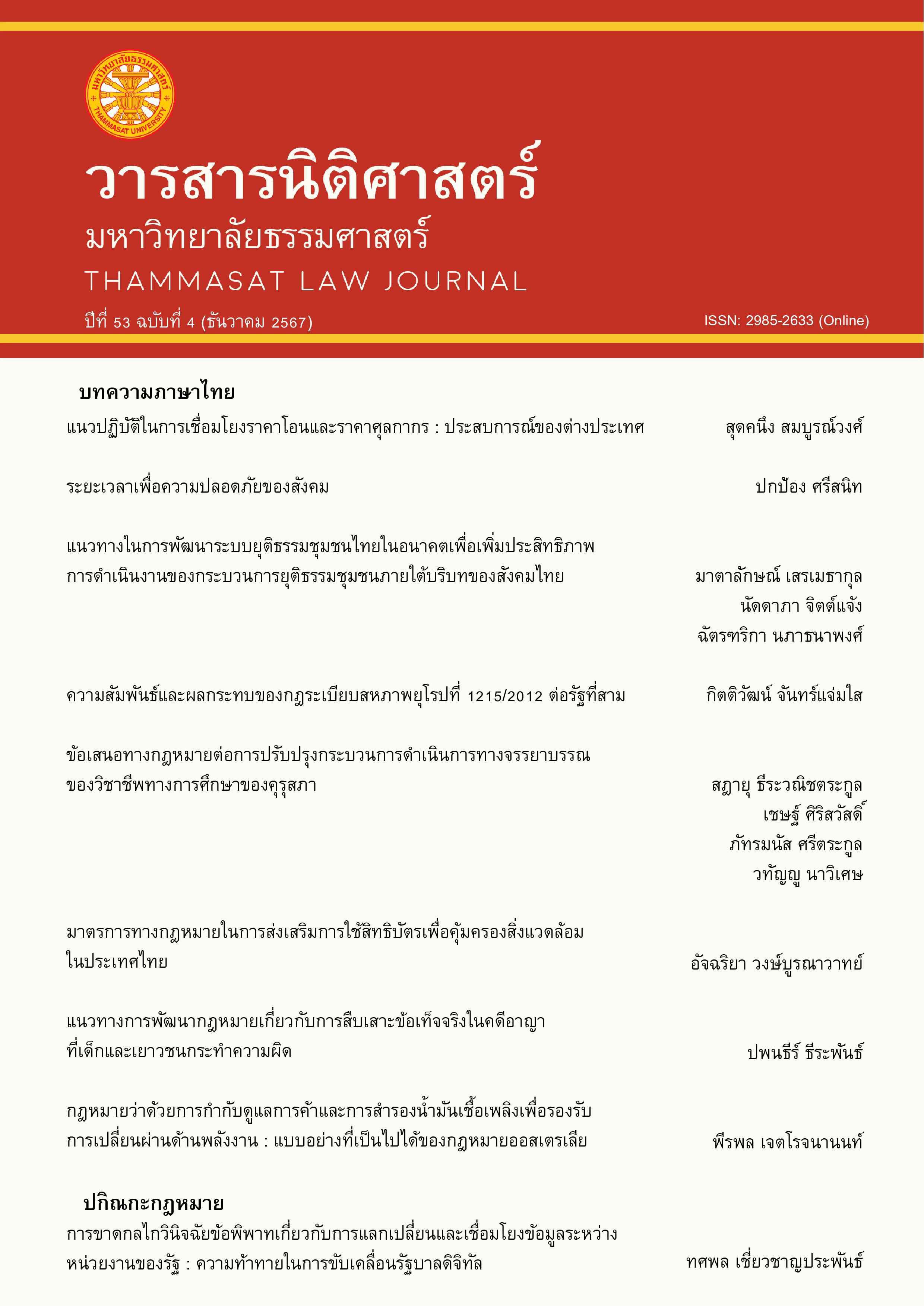Recommendations for Revision of Laws relating to Procedure of Ethical Conduct in the Educational Profession of the Teachers’ Council in Thailand
Keywords:
law revision, ethical procedure, Teacher’s CouncilAbstract
This study aims to provide recommendations for improving the legal framework governing the code of conduct proceedings for the teaching profession by the Teachers Council of Thailand. The study is divided into three phases, primarily focusing on document synthesis. Phase 1 examines the current state and issues related to the code of conduct proceedings for the teaching profession by the Teachers Council. Phase 2 compares the laws related to the code of conduct proceedings for the teaching profession with those of other professions, both domestically and internationally. Phase 3 provides recommendations for improving the legal framework governing the code of conduct proceedings for the teaching profession by the Teachers Council, following the basic problem-solving approach cover short term solution and long-term solution.
The research findings are in 3 phases; In the first phase, the study of the current state and issues related to the code of conduct proceedings for the teaching profession by the Teachers Council revealed that the main problem lies in the centralized nature of the proceedings. Additionally, the laws and regulations related to the code of conduct proceedings lack integration. The structure of the Professional Standards Committee (PSC) lacks impartiality, and this crucial mechanism of the process is responsible for other tasks. In the second phase, the comparative study of laws related to the code of conduct proceedings for the teaching profession and other professions, both domestically and internationally, found that, (1) The six other professions in Thailand share similarities in terms of the intent of the law, related laws, and the final judgment. All professions have a common principle that the committee responsible for imposing penalties and the committee responsible for considering appeals must not overlap, both in terms of the committee and the individuals involved. However, there are differences in the rights to accuse or file complaints, the acceptance of accusations and complaints, the process of considering accusations or complaints, and the appeal process. (2) In the teaching profession across 10 countries or special administrative regions, the code of conduct regulations for teachers is mostly integrated with the professional standards for teachers. The guidelines for conducting code of conduct proceedings for teachers are integrated with discipline and punishment are included in the same legislation. Additionally, there is a decentralization of authority in the personnel management system regarding disciplinary actions and code of conduct proceedings for teachers. The third phase, the recommendations for improving the legal framework suggest focusing on short-term solutions first, as the process of amending subordinate laws is easier and less time-consuming. It is proposed that the legal framework be amended to decentralize the code of conduct proceedings for the teaching profession by the Teachers Council from the central level. The Professional Standards Committee should appoint a subcommittee to directly oversee code of conduct aspect of the profession. Moreover, the Teachers Council should amend subordinate laws to grant the secretary-general the authority to reject accusations or complaints that are found to be inadmissible from the outset.
References
George Z F Bereday, Comparative Method in Education (Holt, Rinehart and Winston Press 1964).
John Scott, A Matter of Record: Documentary Sources in Social Research (Cambridge Press 1990).
Karen Swabey, Geraldine Castleton and Dawn Penney, ‘Meeting the Standards? Exploring Preparedness for Teaching’ (2010) 35(8) Australian Journal of Teacher Education 29.
Kathleen R McNamara, ‘ Consensus and Constraint: Ideas and Capital Mobility in European Monetary Integration’ (1999) 37(3) Journal of Common Market Studies 455.
Maher M Dabbah, International and Comparative Competition Law (Oxford University Press 2010).
Vestov, ‘System Approach Towards Development of Rule-of-Law State’ (2012) 12(2) Journal of Economics Management and Law 99.
Downloads
Published
Issue
Section
License
Copyright (c) 2024 Thammasat Law Journal

This work is licensed under a Creative Commons Attribution-NonCommercial-NoDerivatives 4.0 International License.
The manuscripts published in the Law Journal is the copyright of the Law Journal, Thammasat University
Any article or opinion appeared in the Law Journal will solely be under the responsibility of the author The Faculty of Law, Thammasat University and the editors do not need to reach in agreement or hold any responsibility.



